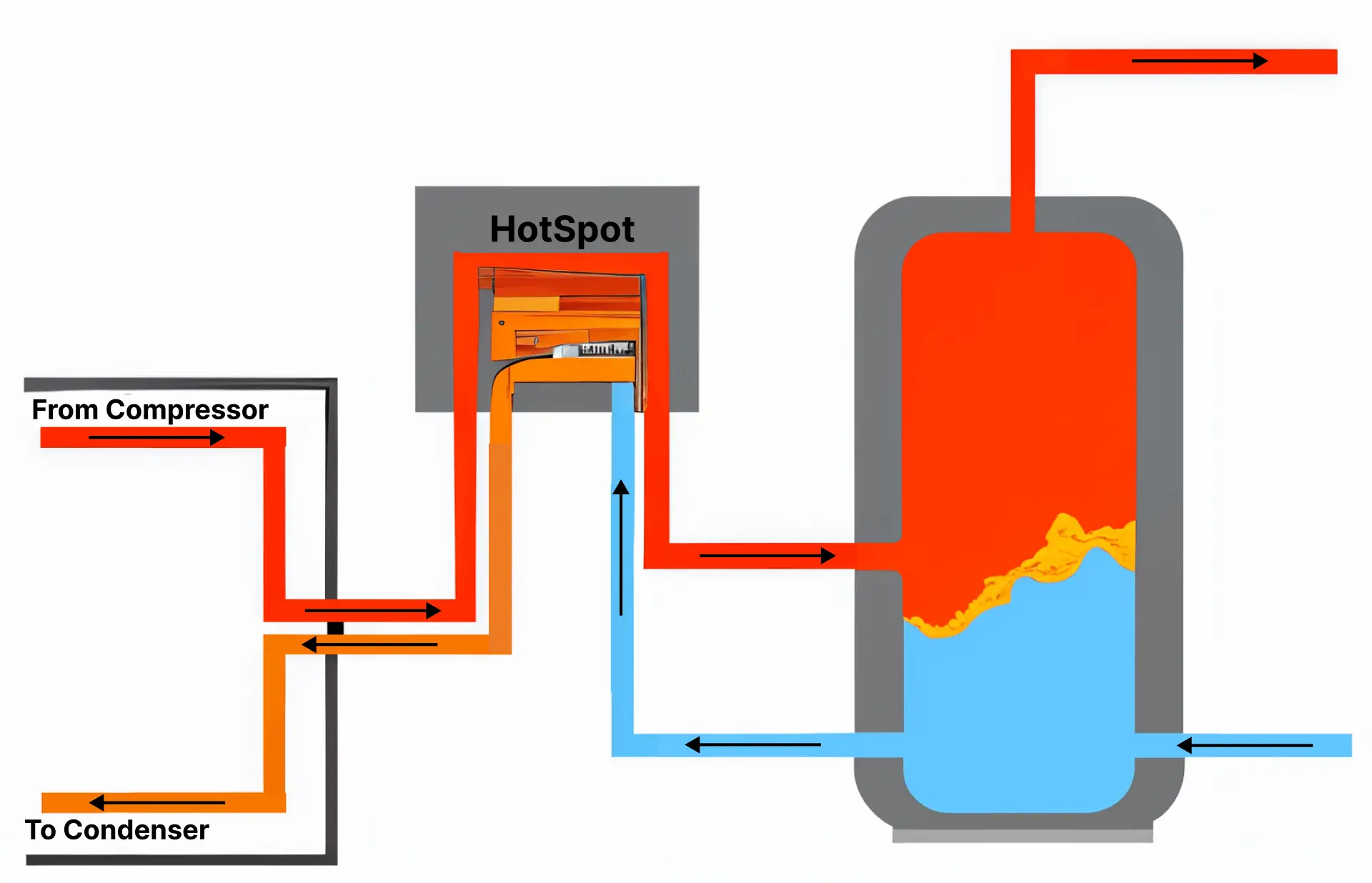Introduction: Does HVAC Include a Water Heater?
When homeowners hear the term HVAC, they usually think of heating, ventilation, and air conditioning systems. But what about hot water? Does HVAC include a water heater? The answer is: sometimes. In many modern systems, HVAC and water heating are integrated, especially in hydronic setups or combination systems. In other cases, the water heater is a standalone unit handled by plumbing rather than HVAC.
Understanding where your water heater fits into the equation matters because it determines who services your equipment, how efficiently your home runs, and whether your comfort systems are working together or separately.
Is a Water Heater Part of HVAC?
So, is a water heater part of HVAC? In some systems, yes — in others, no.
- When it is part of HVAC: In hydronic heating systems, boilers or water heaters provide hot water that also circulates through radiators, baseboards, or radiant floor systems. In this case, the water heater is directly tied to the HVAC. That’s why scheduling regular checkups with professional heating services is essential to keep both your water heating and home comfort system running smoothly.
- When it isn’t part of HVAC: In most American homes, water heaters are separate appliances. A traditional tank or tankless water heater provides domestic hot water only and is not connected to the furnace, AC, or ductwork.
This is why homeowners often get mixed answers. A water heater may be considered HVAC in integrated systems, but in standard setups, it’s classified as plumbing equipment.
How Does a Water Heater Work in HVAC Systems?
At its core, a water heater uses a fuel source (gas, electricity, or heat pump technology) to warm water and store or circulate it for use. But how does a water heater work in an HVAC system?
- In standard water heaters: Cold water enters the unit, gets heated by a gas burner or electric element, and is stored in a tank until needed. Tankless models heat water on demand as it flows through the system.
- In HVAC-integrated systems: The water heater does double duty. It heats water for faucets and showers but also supports space heating by circulating hot water through coils or pipes connected to air handlers or radiators.
- In combination HVAC water heaters: A single appliance provides both domestic hot water and home heating. These systems use advanced controls to balance demand for showers, laundry, and heating.
For More Information: Signs You Need to Repair Your Home Heating System
Types of HVAC Hot Water Heating Systems
Not every water heater is compatible with HVAC integration. Here are the major categories:
1. Tank-Style Water Heaters
Traditional units that store hot water in a tank. They’re reliable but less efficient for combined HVAC use.
2. Tankless Water Heaters
Heat water on demand without a storage tank. When paired with HVAC systems, they can support radiant heating or small combo units, saving space and energy.
3. Boiler-Based Hydronic Heating Systems
Boilers heat water, which then circulates through pipes, radiators, or radiant floors to provide home heating. Many also supply domestic hot water, making them a core example of HVAC hot water heating systems.
4. Heat Pump Water Heaters
These pull heat from surrounding air or ground sources to warm water. In HVAC integration, heat pump water heaters can improve efficiency dramatically, especially in moderate climates.
For More Information: Reasons to install an energy efficient heating system
Does the Water Heater Affect the AC?
A common homeowner concern is: does the water heater affect the AC? Directly, No. A water heater and an air conditioner perform separate tasks. However, there are indirect connections to consider:
- If both appliances share the same electrical circuit, one can impact the performance of the other.
- A malfunctioning water heater that leaks or adds humidity could increase the AC’s workload.
- In combined HVAC-water heating systems, issues in the water heater may reduce airflow or heating/cooling balance.
So while your AC doesn’t depend on your water heater, system health is interconnected.
Do HVAC Contractors Work on Water Heaters?
The answer depends on your setup. Do HVAC contractors work on water heaters?
- Yes, if integrated: If your water heater is part of a hydronic or HVAC combo system, HVAC contractors typically handle installation, maintenance, and repair.
- No, if separate: A standalone tank or tankless water heater is usually considered plumbing. In these cases, you’ll need a licensed plumber.
- Specialized providers: Some companies offer both HVAC and plumbing services, which simplifies service calls when systems overlap.
Choosing the Right HVAC Water Heater Setup for Your Home
Deciding whether to combine HVAC and water heating depends on your household needs. Key considerations include:
- Energy efficiency: Tankless and heat pump systems are usually the most efficient.
- Budget and installation costs: Tank models are cheaper upfront but less efficient long-term.
- Space requirements: Tankless units save space, while hydronic systems need more infrastructure.
- Climate and usage: Homes in colder regions often benefit from boiler-based hydronic setups, while warmer climates may favor heat pumps.
For More Information: Do’s and Dont’s for your Heating System!
Maintenance Tips for HVAC Water Heater Systems
Whether you have a traditional water heater or an integrated HVAC system, regular maintenance protects performance and longevity:
- Flush the tank annually to remove sediment buildup.
- Inspect and replace anode rods every 3–5 years.
- Descale tankless units to prevent mineral buildup.
- Schedule yearly HVAC-water heater tune-ups if you have an integrated system.
These steps reduce energy costs, improve water quality, and extend the life of your system.
FAQs: Quick Answers to Common Questions
Q1. Is a water heater part of HVAC?
Only in integrated systems like hydronic heating or combo units. In most homes, the water heater is a plumbing appliance.
Q2. Does HVAC include a water heater in every home?
No. In most American households, HVAC and water heating are separate systems.
Q3. Can a bad water heater affect AC?
Indirectly, yes — electrical load, leaks, or system integration can create issues, but in most cases, they function independently.
Q4. Do HVAC companies repair water heaters?
If the water heater is integrated with HVAC, yes. Otherwise, a plumber is usually required.
Conclusion: Understanding HVAC and Water Heater Integration
So, does HVAC include a water heater? The honest answer is that it depends on the system. In hydronic and combo setups, the water heater plays a central role in HVAC. In standard homes, it’s separate.
By knowing when your water heater is part of HVAC and when it isn’t, you’ll understand which contractor to call, how your system impacts energy costs, and what upgrades could make your home more efficient.
If you’re considering an HVAC-water heater system or need expert advice, consult a licensed professional to explore the best setup for your home.










